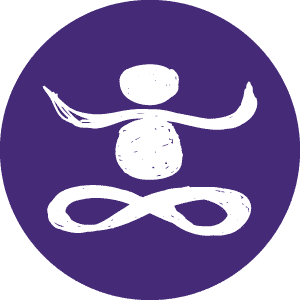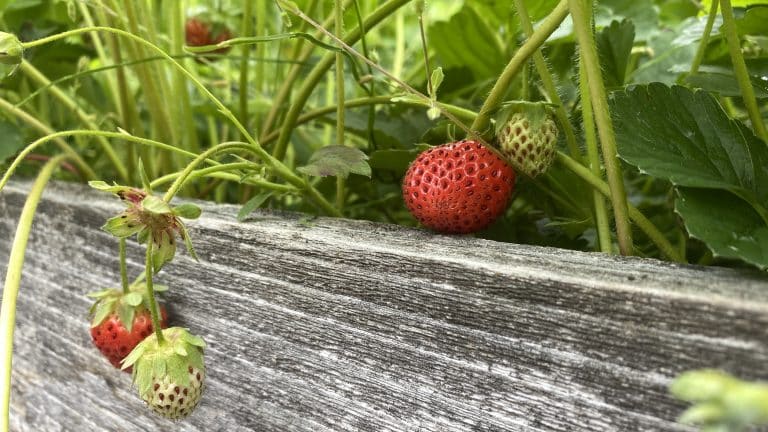Epigenetics is an emerging science that examines the effect of experience on genetic expression. It seems that science has come around to an appreciation of collaboration. It’s yoga!
This article will offer some correlations between the ancient and emerging perspectives.
The Yoga Sutras of Patanjali is an ancient text that outlines a philosophical framework and provides guidelines for self-realization. The Sutras speak of two forces that are considered the pillars of practice. I have also seen these described as the “twin uprights” on the ladder of spiritual growth.
In all of our life experiences, there is a dynamic between energy and matter, structure and chaos, organization of what exists, and transformation into something new. The old debate between “nature and nurture” is settled as we come to realize is not either/or but both/and. Epigenetics is showing us how this works. Yoga can show us how to utilize the process to our advantage!
The pillars that The Sutras speak of are abhyasa and vairagyam. They guide towards balance. With them, we may learn to both accept inevitability and, realize our influence. Acceptance and commitment therapy is a psychotherapeutic modality that employs similar techniques. We use aspects of this modality in our work at Yoga for Mental Health.
Abhyasa comes from the ‘abhi’, which means toward, or into, and the verb root ‘aas’, which means to sit. It is usually translated as “practice” and may also be appreciated as discipline, consistency, intention, or focus. These characteristics correlate with the left hemisphere of the brain and the organization of energy into matter, it may also be correlated to the “nature” of the epigenetic equation.
Vairagyam is the balancing force. It may be correlated to the right hemisphere of the brain and “nurture.” Vairagyam is usually translated as “detachment.” It comes from the root ‘vi’ meaning “without” + ‘rāga’ meaning “passion, feeling, emotion, interest. It may also be understood as free, open-minded, unbiased. It may be pure energy.
Though it may evoke feelings of serenity and ease, balance is actually quite a feisty affair. The fulcrum that balance wobbles upon is somewhere in the middle of chaos and predictability. In terms of practice, it is amidst consistency and adaptability. In epigenetic terms, it is both how we are born and how we live.
How epigenetics works
Epigenetics is an emerging science. It examines the effect of experience on genetic expression. Genes are the little blueprints that are built into every single one of the trillions of cells that make up a body. They contain information about shape, size and function. They don’t actually “do the work.”
Anyone who has ever followed a blueprint knows that there is a lot that can change along the way. Materials may or may not be available when needed, same goes for labor. Conditions may cause delays, but they may also hold unexpected benefits.
We’ve been working on remodeling a section of our old house and this metaphor is rich with real-life examples! There’s been a mound of snow, a tangle of abandoned pipe and wire, another client’s rotted bathtub, a kid’s ski event, and a flood, that have altered our course, just in the past few weeks!
That is how it goes in our bodies too! Pathogens, weather patterns, climatic changes, what we eat, how we move, and what we hear, see, smell, and sense will all affect us. Epigenetics is giving us clarity about how this works.
Matter and energy, plans and action, both contribute to the process of being human. Seeing both our blueprint and our process more clearly will help us to find our way.
Influence epigenetics with yoga
Yoga is wise action. It is the application of wisdom, which The Sutras say may be gained from one’s own experience, from inference, or from wise teachers, to experience. This means paying attention!
Svadyaya or “self study” is one of the first few suggestions for those who aspire to follow this path. A journal, meditation practice, therapist, process group, or any other method that provides an opportunity to digest (rather than consume) will work!
An insatiable desire for “more” can be a significant obstacle to this process. A return to the pillars of practice can provide stability. Abyasa can keep us on course. Consistency is key. Vairagyam can help us build tolerance.
We can be easily discouraged when we begin this process and don’t like what we hear or see. What follows is a (very normal) desire to get away from the discomfort and move towards something else. This is the “fight, flight, or freeze” reaction that happens before we even are conscious of it. It is in the reflection on our experience that we can find the first sprouting seeds of change.
Consistency, structure, and the relative safety that a trustworthy person (and yes, you can be/come that person for yourself) can provide gives the tumult and terror of the awareness process a firm foundation to land on when things feel like they might otherwise be falling apart.
Do I have the genetic potential for Alzheimer’s? Yes… it seems I do. Am I “worried?” No. My lifestyle is as protective as it can be. And… it’s not entirely up to me. Studying epigenetics has helped me to find this perspective.
Cancer, anxiety, psychosis, allergies, and even personality are affected by experience. For example, as a therapist, one of the most significant things that I learn about my clients is their birth order and who they lived with when they were growing up. If they have siblings, I want to know how many, if they are older or younger, and by how much.
Parents’ experience level and expectations tend to change over time. Younger siblings also have the added influence of older ones. These are phenomenally impactful during significant developmental phases. Grandparents, aunts and uncles, teachers, and other community members may have served as primary influences. Knowing who children were watching and listening to as they were learning about the world is incredibly telling.
Birth order is just one factor, innumerable others can help us see more clearly. Start with what’s easy to examine and build systems and tolerance for reflection.
We will continue to explore the epigenetics of mental health in future blog posts and an upcoming webinar series. We welcome your questions and invite you to Contact Us.







